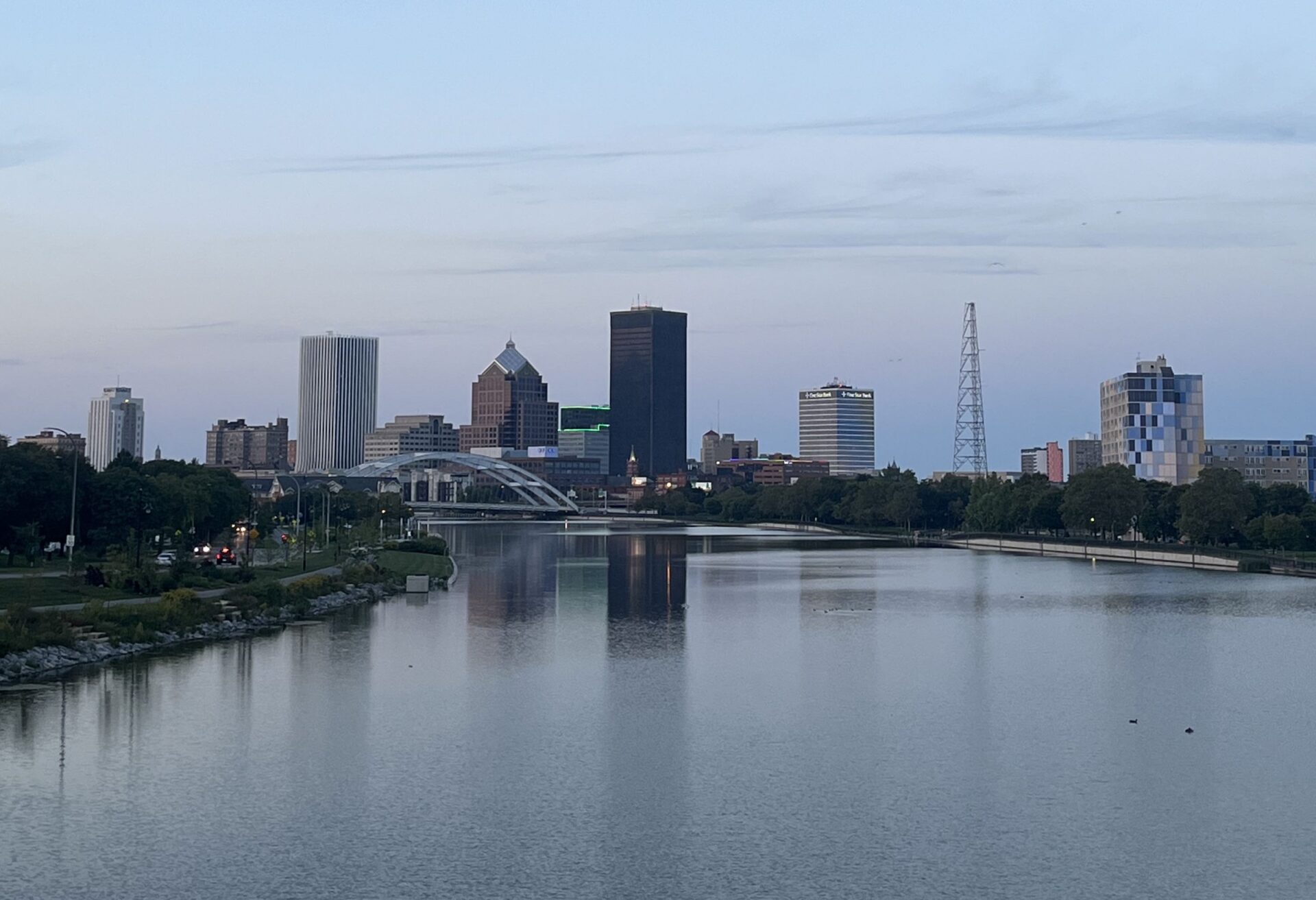“What’s your plan after college?” is a question we encounter everywhere from the family dinner table to waiting for coffee in line at Starbucks. Encountering this question felt very intimidating at first because I didn’t have a consistent answer. Listening to my peers talk about their plans I felt the urgency to have my plan finalized as well. However, interviewing recent alumni from the University of Rochester and learning about their post-grad journey reassured me about figuring out my plan as I go through college. In this blog, I will be sharing their journey from the U of R to their post-grad achievements in hopes of making the process a little less intimidating!
Kylie Sargeant is a double alumnus of the College of Arts and Sciences and Simon Business School who majored in Psychology and Religion during her undergraduate career. On campus, she was involved with the UR Concert Club and did multiple internships in the Rochester area related to event management. After graduation, she continued to work in the event management industry. After a few years of working, she went back to school at Simon Business School. During her MBA, she specialized in product management which helped her land her current position at a Financial Advising Services company. When asked about any advice for current students she said, “Picking a major can feel like a big deal, the reality is many jobs don’t align with the major as much as you think.” She suggested investing in yourself during college and learning the things you always wanted to learn rather than picking a major because you think the job industry is growing.
During her MBA, she specialized in product management which helped her land her current position at a Financial Advising Services company. When asked about any advice for current students she said, “Picking a major can feel like a big deal, the reality is many jobs don’t align with the major as much as you think.” She suggested investing in yourself during college and learning the things you always wanted to learn rather than picking a major because you think the job industry is growing.
Tahsin Himi was a Biomedical Engineering major at the Hajim School of Engineering and is currently working as the Director of Data and reporting at BMG. During her time at Rochester, she was involved with BME research and did internships during the summer. After graduating from the U of R, she went on to get a master’s in Business Analytics from Fordham University. 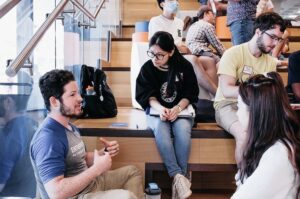 During our talk, Himi emphasized utilizing the Greene Center at the University to get better at presenting yourself in the professional world. She described the job market as a lottery and mentioned she had applied to nearly 200 jobs before getting her first offer. Himi also talked about the importance of networking through a curious lens rather than thinking about it as a transactional relationship. It’s important to learn about people’s journeys and build genuine connections in the professional world rather than only interacting with people for the sake of a referral.
During our talk, Himi emphasized utilizing the Greene Center at the University to get better at presenting yourself in the professional world. She described the job market as a lottery and mentioned she had applied to nearly 200 jobs before getting her first offer. Himi also talked about the importance of networking through a curious lens rather than thinking about it as a transactional relationship. It’s important to learn about people’s journeys and build genuine connections in the professional world rather than only interacting with people for the sake of a referral.
Anaya Goyal, a former admission blogger and a Biomedical Engineering major at the Hajim School of Engineering is currently a fourth-year Ph.D. student at Stanford. During her time at the U of R, she was very involved with research and on-campus jobs at the Admission Office. She joined her BME advisor’s lab towards the end of her freshman year which gave her exposure to research and inspired her to pursue a Ph.D. Anaya went i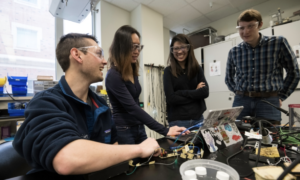 nto her Ph.D. program right after graduating from the U of R. During our conversation, she emphasized the importance of going to office hours and getting to know your professors. During junior year when class sizes got smaller, she was able to get to interact with her professors one on one and build a mentor-mentee-like relationship. These relationships helped her navigate applying to grad school and gathering recommendation letters.
nto her Ph.D. program right after graduating from the U of R. During our conversation, she emphasized the importance of going to office hours and getting to know your professors. During junior year when class sizes got smaller, she was able to get to interact with her professors one on one and build a mentor-mentee-like relationship. These relationships helped her navigate applying to grad school and gathering recommendation letters.
Abhishek Makhun graduated from the U of R with a Bachelor of Science in Computer Science and is a current Software Engineer at Amazon. He also started his band with his co-workers which was inspired by being part of NJR at the U of R. During our conversation, he mentioned the most transformative part of his college experience was being involved with Campus 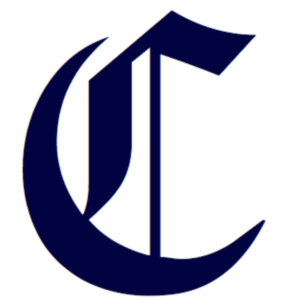 Times which helped him become less shy and get comfortable talking to new people. This has helped him get comfortable during the interview process and build connections in the corporate world. When I asked him about his path to working at Amazon he talked about developing an app that would help Fraternities on campus keep track of attendance for parties. Although this app did not end up being very successful it gave him a lot of stories to talk about during his job interviews and showcase his planning and executing skills. For anyone interested in a tech career, he suggested getting good at the technical skills but also showcasing why you would be a great co-worker by developing skills such as problem-solving and leadership.
Times which helped him become less shy and get comfortable talking to new people. This has helped him get comfortable during the interview process and build connections in the corporate world. When I asked him about his path to working at Amazon he talked about developing an app that would help Fraternities on campus keep track of attendance for parties. Although this app did not end up being very successful it gave him a lot of stories to talk about during his job interviews and showcase his planning and executing skills. For anyone interested in a tech career, he suggested getting good at the technical skills but also showcasing why you would be a great co-worker by developing skills such as problem-solving and leadership.
Lucas Wang graduated from the University of Rochester with a dual degree in Electrical engineering and Math. After graduation, they went to Columbia University to get a master’s in Neuroengineering and are currently pursuing a Ph.D. at NYU focusing on utilizing psychiatric data to diagnose people. Throughout college, they had been interested in Neuroscience but did not want to commit to a major. In their junior year, they were participating in a research study and had an EEG done on them. During the study, the person conducting 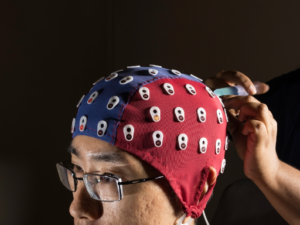 the research and Lucas had a conversation about the connection between Electrical engineering and Neuroscience. Since that moment, Lucas was introduced to this field of neuro-engineering and has decided to pursue it post-graduation. For anyone interested in purchasing a Ph.D. Lucas suggested getting involved with research and figuring out whether or not. A Ph.D. is long and can be very draining so you have to like research and what you study to stay motivated!
the research and Lucas had a conversation about the connection between Electrical engineering and Neuroscience. Since that moment, Lucas was introduced to this field of neuro-engineering and has decided to pursue it post-graduation. For anyone interested in purchasing a Ph.D. Lucas suggested getting involved with research and figuring out whether or not. A Ph.D. is long and can be very draining so you have to like research and what you study to stay motivated!
Lastly, I interviewed Leo Liu who was a Mechanical engineering major at the Hajim School of Engineering and is currently finishing his Ph.D. at UVA concentrating in bio-inspired fluid mechanics. During his time in Rochester, he was involved with research and had the opportunity to attend a conference where he met his current Ph.D. advisor. This was a crucial point for Leo because he realized he liked research and wanted to pursue a Ph.D. Leo is also very interested in bridging the communication gap between engineers and corporations and wants to work in management consulting after his Ph.D. 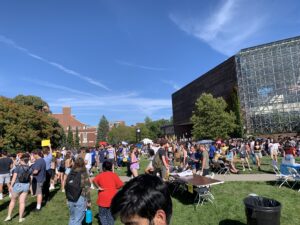 When asked about his transition from undergrad to the Ph.D. program he mentioned experiencing a huge cultural shock. However, he was able to find people and make friends who made the process smoother. Leo also emphasized building a community where you can help each other and be genuinely interested rather than just networking to get a job referral.
When asked about his transition from undergrad to the Ph.D. program he mentioned experiencing a huge cultural shock. However, he was able to find people and make friends who made the process smoother. Leo also emphasized building a community where you can help each other and be genuinely interested rather than just networking to get a job referral.
Through interviewing and learning about their journey after post-grad, I felt more hopeful and reassured about the path I will be walking. Although it may be very blurry right now, I am confident we will all figure out the answer to “What’s your plan after college?” sooner or later. In the meantime, be kind to yourself and truly explore what you are interested in rather than focusing on the outcome. Good luck, you got this!

